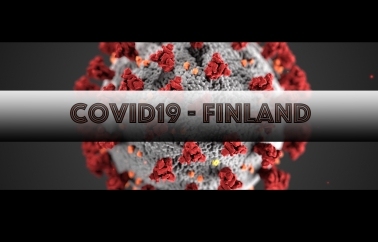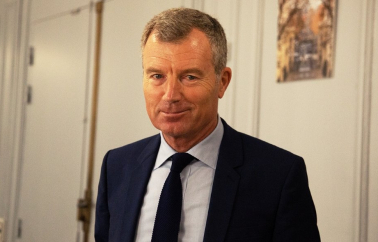
Feedback shared by Mrs. SAVOLAINEN, General Director at Regional State Administrative Agency for Northern Finland, regarding the COVID19 crisis management

Management support
Northern Finland
12/06/2020
COVID-19, background material
Background information and Current Situation with COVID-19 in Finland and especially Northern Regions of Finland
Our mental crisis resilience has been tested and we have had many new challenges. Our spring has been exceptional in many ways. Coronavirus has implications; economic, health, and long-term influences. The economic implications most strongly impact those who are in employment, health implications especially impact the elderly and those in risk groups, and long-term influences mostly impact children and young people.
Compared to last year the unemployment rate has risen almost by 80% in Northern Ostrobothnia and around 50% in Kainuu. Tourism, the service sector, restaurants, and shops have been the most affected.
The economic situation of municipalities has weakened. The health sector, especially, will have challenges in the future to handle the backlog of patients, built up due to the coronavirus situation.
In the north, the pandemic is on hiatus
Fortunately, the COVID-19 situation in our region, Northern Ostrobothnia and Kainuu, has been calm.
So far, less than five cases of COVID-19 have occurred in the majority of municipalities in our area.
Healthcare in our region is well prepared for a very large epidemic. Tracing cases of the disease, an integral part of disease management, has been very successful in our region.
The improving COVID-19 situation in Finland has made it possible to lift some restrictions and start opening up society.
However, coronavirus has not disappeared everywhere, and also, we are not yet fully aware of the behaviour and danger of it. As it still takes time to develop the vaccine, we must constantly be prepared for an increase in cases of the disease, and a possible second or third wave of the virus.
Now we have to live with coronavirus – carefully, and following hygiene instructions, as well as observing safe physical distances. In this still serious situation, careful behaviour, attentiveness, and consideration for other people are very important as we seek a new normal and more freedom in our lives.
Regional State Administrative Agency (AVI) assembled crisis networks to secure cooperation
With the onset of the epidemic, there was a need for a wide variety of networks. Coordinating preparedness, exchanging information, and creating situational pictures require regular contact and good communication.
More than ten situational pictures are required by the ministries which govern our work, covering a wide range of information. For example, the Ministry of Education and Culture requested weekly situational pictures of children who were still attending primary and early childhood education due to learning difficulties or parents being crisis key workers.
The Northern Finland Regional Preparedness Committee has met weekly since March.
In our region, key authorities, the business community and the third sector have participated in the cooperation.
The Kainuu Preparedness Forum and the Jokilaakso Preparedness Safety and Security Forum have also played an important role in creating their own regional picture.
In addition to this, AVI's management has assembled networks of municipal leaders, social work management, education management, grocery management, as well as key stakeholder management and crisis communicators.
Our decisions are based on the Communicable Diseases Act
The situation has affected the operations of our agency in many ways. The Regional State Administrative Agency has been a key player in the implementation of the Government's COVID-19 policies and guidelines.
Our regional decisions have been based on the Communicable Diseases Act and have complied with national policies. Thanks to these restrictive measures and, above all, to the responsible behaviour of the people, the disease situation in our region is currently in such good shape.
It is possible in the future that restriction decisions can also be made regionally, depending on the course of the disease.
Consistent communication is essential
As soon as the crisis began, the AVI communications department started operating according to the principles of enhanced communications. Dedicated communicators stopped nearly all regular activities and took responsibility for the coronavirus related communications and the communications support for the Preparedness Committees. The focus, on one hand, has been on informing the public and operatives about our decisions and how to apply them in everyday situations. On the other hand, we have maintained the communications situation awareness, i.e. media and social media reactions, to help our decision makers in their work.
Seasonal Agricultural Workers
Currently, due to border restrictions and quarantine regulations, there are many challenges for seasonal workers from abroad to come to Finland. In the summer it will be challenging to find enough domestic workers to harvest crops and pick berries. Usually over 2000 seasonal workers come to Finland from abroad.
Outlook for a lively domestic tourist summer
Vibrant domestic tourism is expected in our region, which will also bring the desired economic activity. To the best of our knowledge, the accommodation and tourism industry has carefully assessed the hazards and risks and is planning its services to be virus-safe through the due diligence required by the COVID-19 pandemic.
Recent Actions
Our most recent decisions concerned the transition of primary and early childhood education back to mainstream education and measures to restrict public meetings and public events. Municipalities and regional actors have a great responsibility in preventing the spread of the disease with their decisions.
The compliance conditions and practical implementation of our restrictions take place at the local level in municipalities, companies and the third sector. Food and beverage establishments, such as restaurants and cafes were allowed to open their doors, with special arrangements, throughout the country from 1st June. AVI's task is to monitor compliance with restrictions and obligations.
Latest government decisions (12th of June)
Government said on Thursday that it would ease restrictions on cross-border travel imposed to slow the spread of novel coronavirus. From Monday, 15 June, Finnish residents will be able to travel to Baltic and Nordic countries, apart from Sweden. Mandatory 14-day quarantine is not required. Restrictions on travelling to countries such as Sweden and Russia will remain in place.
Government has also decided to lift restrictions on large public events involving audiences of more than 500 from 1 July. However event organisers will be required to implement special arrangements. For example they will be required to to separate audiences into sections.
Risk groups still at risk
The Government and the Ministry of Social Affairs and Health have revised guidelines for care homes and the over 70-year olds. Care homes were closed to visitors on 17th March and are still generally closed for visits. However, meetings between residents and loved ones can be arranged in a virus-safe manner, taking human feelings into account. The government, through its policies and guidelines, has relaxed the recommendations for people over the age of 70, emphasising that the disease is still a particular risk for them. If it is possible, the over 70-year olds are still recommended to avoid contacts. Government is stressing one’s own consideration in this matter.
The agency operates remotely
Due to the coronavirus situation, regional government agencies have limited their own control and inspection activities, which started to be carried out again from the beginning of June with strict security measures.
Otherwise, our agency has adapted to the exceptional circumstances and continued to operate at full capacity through working remotely. The Government has instructed that working from home will continue in state work during the summer.
In mid-June, we will publish an evaluation report on basic services, including local and national results. During the summer, our new customer-oriented websites will also be completed, which will enable us to serve our customers more smoothly digitally.
Working life suddenly changed
The effects of this crisis on working life are enormous. The way we work changed almost overnight. Now we have the opportunity for the whole society to streamline operations and carefully consider how work impacts our environment. Mobility is reduced and savings are made on business and travel costs. The change truly enables multi-location and location independence, i.e., working from different parts of Finland.
Coronavirus is slowing, and we are expecting the second wave will come in the autumn. We are going to improve our preparedness and cooperation between authorities, and we are analysing what we have done and identifying good practices. This pandemic is a marathon, and now we are just at the first drinking station. We have to learn to live everyday life with coronavirus until we have a vaccine.
There are lessons to be learned from every crisis. Extensive social impacts and learnings will only become apparent over time and practice. Already at this stage, it is clear that the regional and the local level are key players in a nationwide crisis.


REGIONAL STATE ADMINISTRATIVE AGENCY FOR NORTHERN FINLAND
tel. +358 295 017 500
Linnankatu 1-3
P.O. Box 293
FI-90101 Oulu



